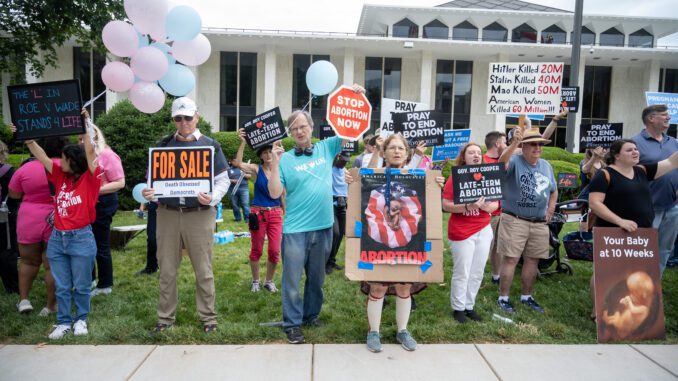
SB 20 brings North Carolina abortion regulation in line with most European nations, yet inexplicably it is described as “extreme” by abortion supporters. As a neonatologist, I support SB 20. Until the 1960s, physicians universally acknowledged new life begins at fertilization. The current debate is not about when new life begins ― that is settled science. What is up for debate is at what point can a new life be sacrificed and which lives matter.
While wish SB 20 could save more mothers and infants from the trauma that is abortion, this bill will save many. It is also unique with respect to its exception for life-limiting anomalies. Neonatologists provide care for infants with a variety of life-limiting anomalies, previously described inaccurately as “lethal” since literature reveals that in all prolonged survival is possible. With regular maternal blood screening for fetal genetic disorders and the use of ultrasound technologies, life-limiting diagnoses are increasingly made prenatally. SB 20 recognizes the lack of informed consent that mothers often experience when making decisions for infants with conditions including trisomy 13, trisomy 18 and anencephaly. Trisomies 13 and 18 refer to genetic disorders with an extra chromosome which lead to variable medical complications. Anencephaly is a condition in which the skull and upper portions of the brain fail to develop.
It is regularly reported by parents in these very desired pregnancies that when a life-limiting condition is discovered it is referred to as “lethal”, and follow-up conversations focus on when to schedule an abortion. SB 20 provides an exception for infants with life-limiting anomalies but requires physicians to use proper terminology and addresses the common failure to inform parents of the potential for life for their infant if pregnancy continues.
Publications report in continued pregnancies with anencephalic babies, most survive to a live birth and live treasured short lives. Infants with trisomy 13 are most often born alive. Trisomy 18 infants have a higher stillbirth rate but are often born alive. Literature for trisomy babies that receive medical care reports survival to 50% at one year for children alive at one month and 20% at 10 years. As social media support groups make parents aware of this potential for life, parents then begin the search for supportive providers who will not discriminate against their babies. These families deserve more than an abortion appointment. They deserve nondirective counseling including options for continuing pregnancy.
Publications show that in cases of trisomy 18, many physicians know medical care is not futile but believe the lives that result are not meaningful. A survey of trisomy support group families found 93% were told their child was “lethal,” 61% felt pressure to abort and 94% were told their child would die before birth. The fact that many doctors still refer to these conditions as “lethal” speaks volumes. It exposes bias regarding the quality of life, not the ability to survive.
In contrast, family experiences with trisomy children paint a different picture. When asked about a future trisomy pregnancy and their child, 91% would continue the pregnancy, 97% report a positive impact on their family and 91% report their child is happy. For anencephaly, mothers who continued pregnancies have significantly better mental health outcomes compared to those who abort. In another survey of continued anencephaly pregnancies, all mothers stated they had no regrets about their choice. It is rare for parents to hear prenatally from doctors about the potential for life, even if short, with such a child. They hear plenty about lethality and hardships before being asked about abortion scheduling.
SB 20 requires physicians counseling parents to offer informed consent and adhere to American College of Obstetricians and Gynecologists recommendations: “Perinatal palliative comfort care is one of several options along a spectrum of care, which includes pregnancy abortion and full neonatal resuscitation and treatment, that should be presented to pregnant patients faced with pregnancies complicated by life-limiting conditions.”
Former Vice President Hubert Humphrey said, “The moral test of government is how the government treats those in the dawn of life, the children; those in the twilight of life, the elderly; and those in the shadows of life, the sick, the needy, and the handicapped.”
I pray the state of North Carolina passes this test and this bill.
Dr. Martin McCaffrey is a neonatologist practicing in Raleigh and a retired U.S. Navy captain.
